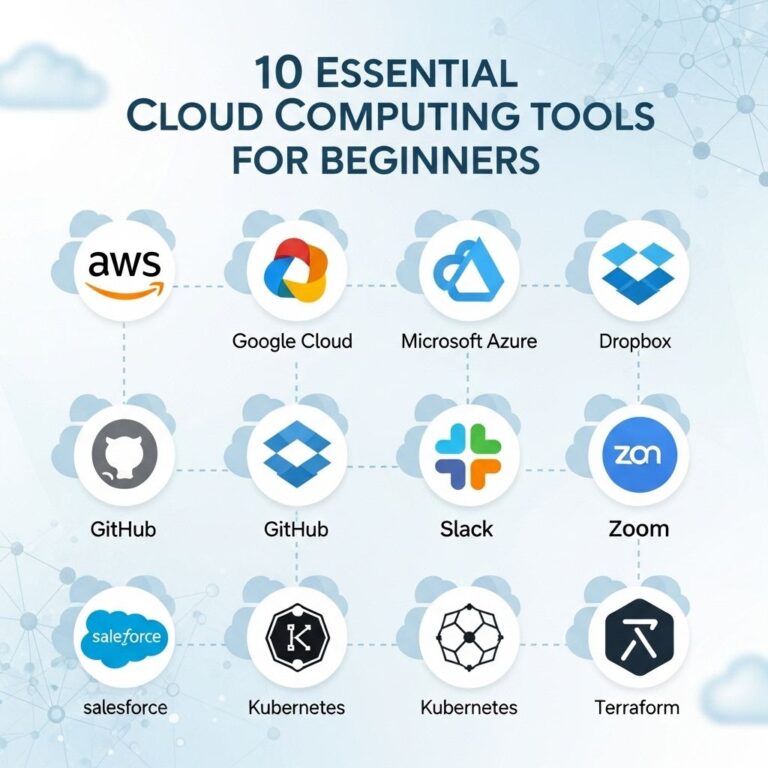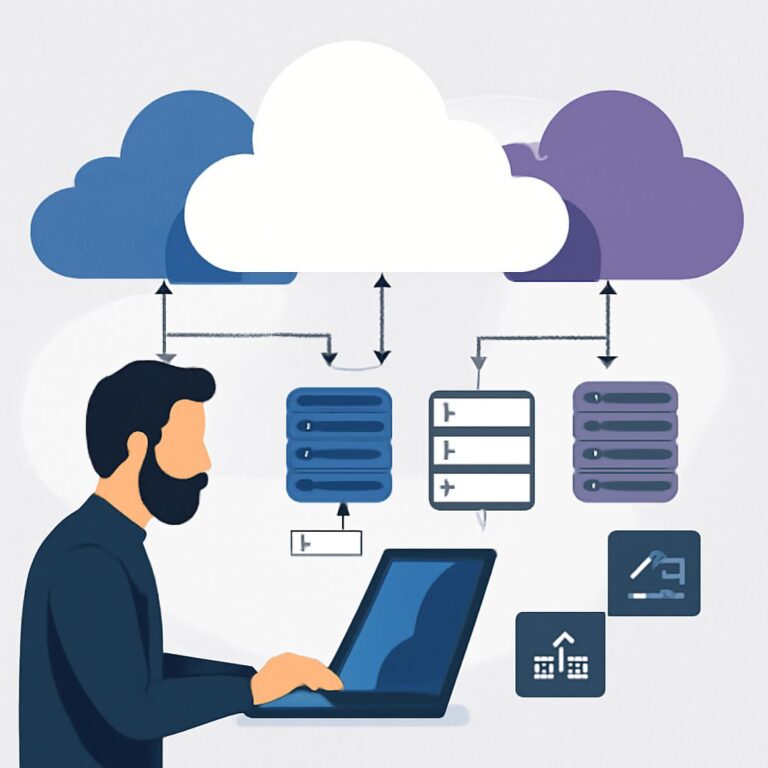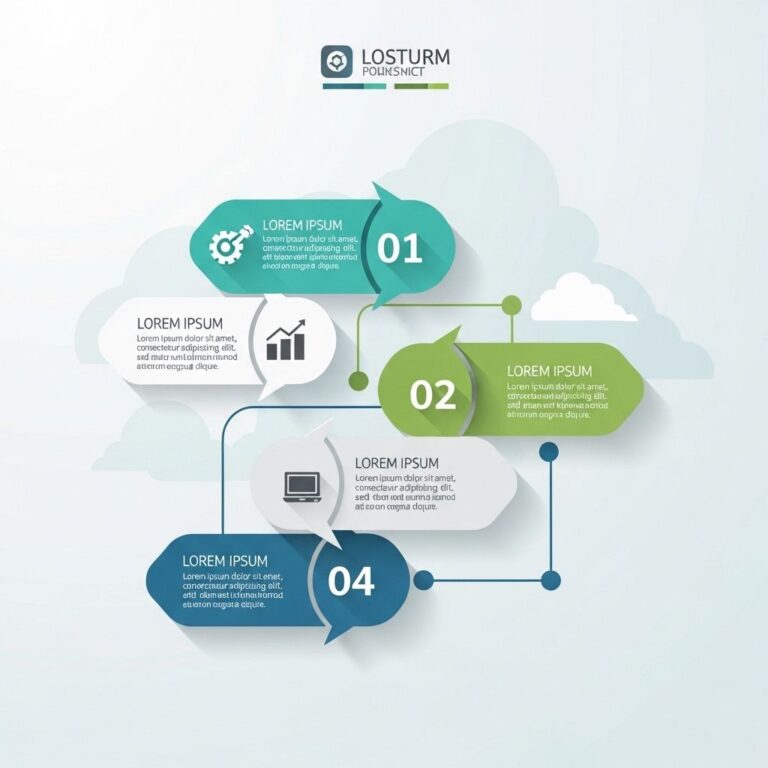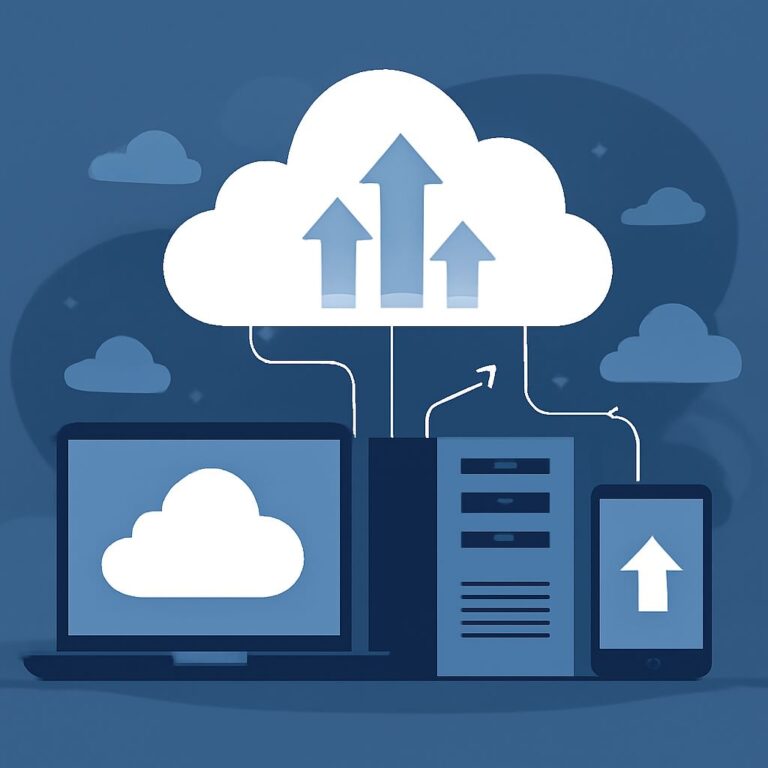As we approach 2025, the landscape of cloud computing continues to evolve rapidly, with new tools and technologies emerging to meet the demands of businesses and developers alike. The shift towards remote work and the need for scalable solutions have made cloud computing an indispensable part of modern IT infrastructure. In this article, we’ll explore the top cloud computing tools that are set to dominate the market in 2025, providing insights into their features, use cases, and why they stand out from the competition.
Table of Contents
1. Amazon Web Services (AWS)
Amazon Web Services has been a leader in the cloud computing space for years, and its comprehensive suite of tools is expected to solidify its position in 2025. With a diverse range of services, including computing power, storage options, and machine learning capabilities, AWS caters to businesses of all sizes.
Key Features:
- Scalability: AWS allows users to scale resources up or down according to demand, ensuring efficient cost management.
- Global Reach: With data centers across multiple regions, users can deploy applications close to their customer base.
- Advanced Security: AWS offers robust security features, including encryption and compliance certifications.
Use Cases:
AWS is suitable for a variety of applications, from hosting static websites to running complex machine learning models. Businesses in sectors such as finance, healthcare, and e-commerce rely on AWS for its reliability and performance.
2. Microsoft Azure
Microsoft Azure is another heavyweight in the cloud computing arena, known for its seamless integration with Microsoft products. Its hybrid cloud capabilities are particularly appealing as businesses look for flexible solutions that can bridge on-premises infrastructure with the cloud.
Key Features:
- Hybrid Solutions: Azure’s hybrid cloud services enable companies to build and manage applications across on-premises and cloud environments.
- AI and Machine Learning: Azure provides advanced tools for data analytics and AI, empowering organizations to glean insights from their data.
- Enterprise Integration: Businesses using Microsoft 365 and other Microsoft products can easily integrate Azure into their existing workflows.
Use Cases:
Azure is ideal for businesses looking to enhance their productivity through cloud technology, particularly those already within the Microsoft ecosystem.
3. Google Cloud Platform (GCP)
Google Cloud Platform leverages Google’s expertise in data analytics and machine learning, attracting businesses aiming to utilize big data and AI technologies. Its user-friendly interface and competitive pricing make it a desirable option for startups and large enterprises alike.
Key Features:
- Big Data Solutions: GCP offers robust tools like BigQuery for analyzing large datasets efficiently.
- Machine Learning: With tools like AutoML, GCP simplifies the process of building and deploying machine learning models.
- Serverless Computing: Google Cloud Functions allows developers to run code without managing servers, facilitating event-driven programming.
Use Cases:
GCP is particularly favored by companies focusing on data analytics and machine learning, including those in sectors like advertising and e-commerce.
4. IBM Cloud
IBM Cloud distinguishes itself with its emphasis on enterprise solutions, hybrid cloud, and artificial intelligence. Its capabilities make it an excellent choice for businesses in regulated industries such as healthcare and finance.
Key Features:
- AI Integration: IBM Watson offers powerful AI tools that can be integrated into cloud applications.
- Security and Compliance: IBM Cloud provides strong security features, making it suitable for industries with stringent compliance requirements.
- Quantum Computing: IBM is at the forefront of quantum computing, providing tools to explore this emerging technology.
Use Cases:
IBM Cloud is ideal for enterprises needing a secure environment for sensitive data and those looking to innovate with AI and quantum computing.
5. DigitalOcean
DigitalOcean has gained popularity among developers and small to medium-sized businesses for its simplicity and cost-effectiveness. Its focus on developer-friendly tools makes it a top choice for startups.
Key Features:
- Simple Pricing: DigitalOcean provides transparent pricing with no hidden fees, making budgeting straightforward.
- Developer-Centric Tools: With features like one-click apps, DigitalOcean makes it easy for developers to deploy applications.
- Community Support: DigitalOcean boasts a strong community with extensive documentation and tutorials.
Use Cases:
DigitalOcean is perfect for developers and startups looking to deploy applications quickly and affordably, particularly in web development.
Conclusion
As we anticipate the advancements in cloud computing by 2025, the tools mentioned above are set to play pivotal roles in shaping how businesses operate and innovate. From the comprehensive ecosystems of AWS and Azure to the specialized offerings of GCP, IBM Cloud, and DigitalOcean, each tool presents unique advantages tailored to different needs. Selecting the right cloud computing tool depends on various factors, including business size, industry requirements, and specific technological goals. Staying informed about these tools will be essential for businesses aiming to harness the full potential of cloud technology in the coming years.
FAQ
What are the top cloud computing tools for 2025?
The top cloud computing tools for 2025 include platforms like AWS, Microsoft Azure, Google Cloud Platform, IBM Cloud, and Oracle Cloud, each offering unique features for businesses.
How do I choose the right cloud computing tool for my business?
To choose the right cloud computing tool, consider factors such as scalability, security, pricing, ease of use, and the specific needs of your business.
What are the benefits of using cloud computing tools?
The benefits of using cloud computing tools include cost efficiency, scalability, improved collaboration, enhanced security, and access to advanced technologies.
Are cloud computing tools suitable for small businesses?
Yes, cloud computing tools are highly suitable for small businesses as they offer flexible pricing options and allow for easy scaling as the business grows.
What security measures should I look for in cloud computing tools?
Look for features like data encryption, regular security updates, compliance certifications, multi-factor authentication, and robust access controls in cloud computing tools.
How can cloud computing tools improve collaboration in teams?
Cloud computing tools enhance collaboration by enabling real-time access to files, facilitating seamless communication, and allowing multiple users to work on projects simultaneously.









